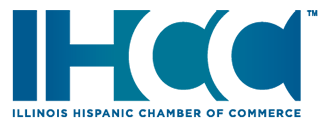 The Illinois Hispanic Chamber of Commerce (IHCC) and the Illinois State Black Chamber of Commerce (IBCC) view with great concern the final procedure and criteria established by the Illinois Department of Financial and Professional Regulation to grant the 75 new licenses for recreational marijuana dispensaries. There are issues with both the scoring criteria and the lottery system.
The Illinois Hispanic Chamber of Commerce (IHCC) and the Illinois State Black Chamber of Commerce (IBCC) view with great concern the final procedure and criteria established by the Illinois Department of Financial and Professional Regulation to grant the 75 new licenses for recreational marijuana dispensaries. There are issues with both the scoring criteria and the lottery system.
When the State of Illinois first announced that it would be granting 75 dispensary licenses this year, our organizations declared that we needed to be very sure that the process will comply with the objectives previously established by current regulations, and that the program would benefit minority owned companies.
The Illinois recreational marijuana law established specific social equity rules intended to help diversify the majority white-owned industry. Companies that are majority owned by social equity applicants receive 50 of the 252 total points available.
Social equity applicant status can be achieved by having (1) a majority owner (51%) who is a resident of a disproportionately impacted area, (2) a majority owner (51%) with a marijuana-related arrest record that is now eligible for expungement, or (3) if the company employs at least 10 people, then 50% of its staff must otherwise meet the social equity applicant status.
This means that applicants that do not operate dispensaries, or that have no other ongoing business other than applying for the dispensary licenses, can hire five people at minimum wage and get the same score as entrepreneurs from the community or who have been impacted by marijuana arrests. This appears to be a loophole that works against entrepreneurs from the Black and Latino communities.
Black and Latino communities have been negatively affected by the cannabis industry, prisons have been filled with our people, and now it seems that our entrepreneurs cannot directly benefit from this industry,” said Jaime di Paulo, President & CEO of the IHCC.
“We have been unfairly relegated.”
Our Chambers agree with Edie Moore, executive director of the Chicago NORML organization, who said that all finalists technically meet the definition of social equity applicants, but there are no actual minority representatives at the helm of the Approved applications.
Before the licenses are granted, IDFPR should report to stakeholders and public officials regarding how many companies with perfect scores are majority owned by residents of disproportionately impacted areas, people with an arrest record that can be expunged, companies that achieved social equity applicant status due to their hiring practices, and minorities (broken down by race and gender). All of this information was made available to IDFPR by the applicants with each submittal.
The State should ask whether the current legislative definition of a social equity applicant matches its intent for creating the most equity centric program in the nation. It should also review whether its current tiebreaker system, which uses a lottery, supports its goal.
One alternative would be to use a tiebreaker system where awards first go to social equity applicants who reside in disproportionately impacted areas, then to social equity applicants with a record of offenses eligible for expungement, then to Illinois owners, then to Veterans, and finally a lottery system if all else is equal.
“We had the opportunity to make sure our communities get a piece of the pie. The problem will come when many of these new licenses are rolled out, and the first companies are run by people who are not of color. They will have a 12-month head start before we can attempt to level the playing field. We cannot keep quiet about what we consider to be an injustice,” said Larry Ivery, President & CEO of the Illinois Black Chamber of Commerce.
Changing the scoring system to close what appears to be a loophole, and changing the tiebreaker system to support the goal of having the most equity centric program in the nation, is possible and can be done before these first 75 licenses are awarded.

